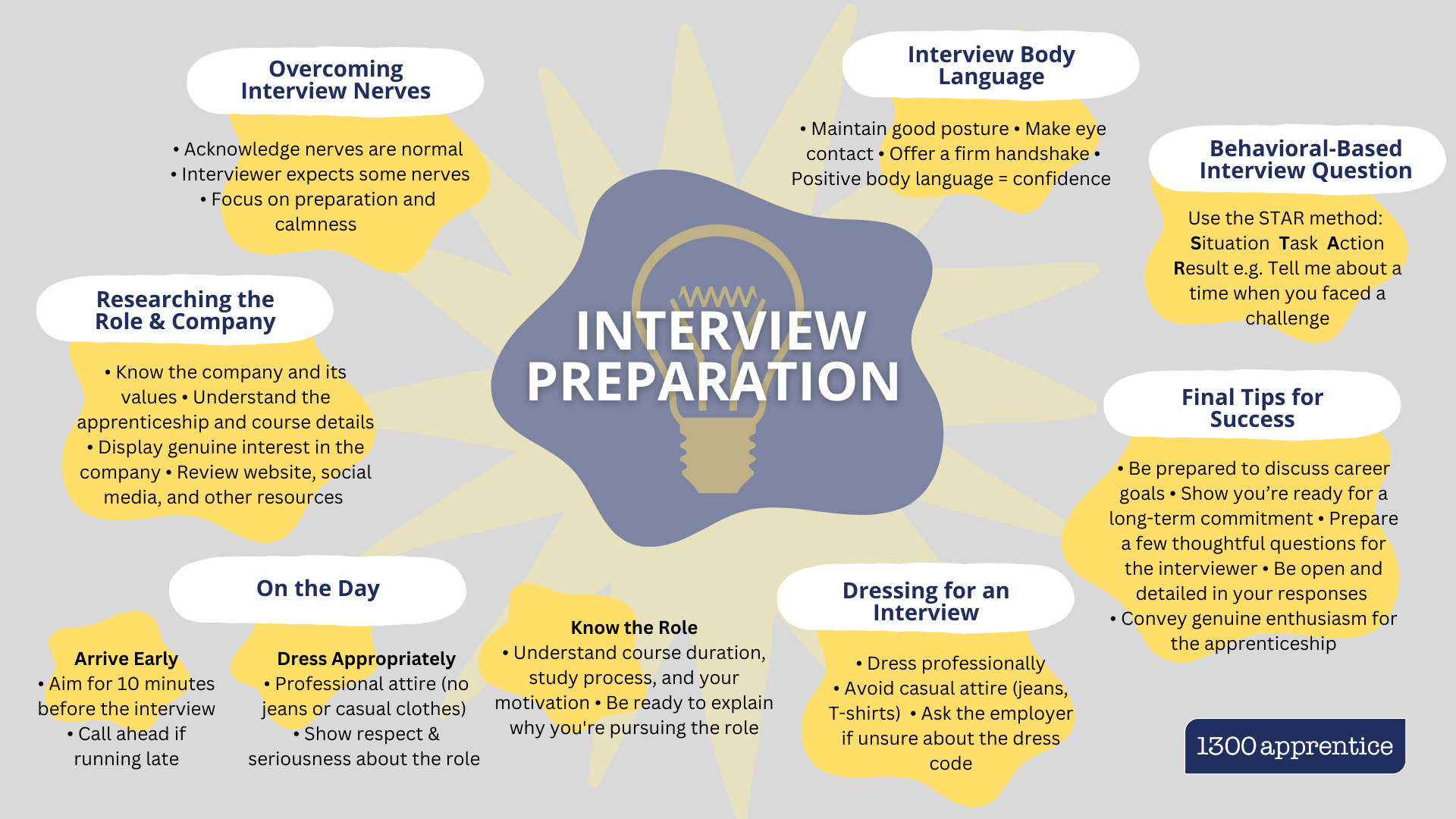Chad’s blog 5 – Interview preparation & research
Welcome to the 5th part of my recruitment blog! This time, we are looking at researching and preparing for the interview. Again this is a simple exercise that a lot of job hunters ignore or don’t consider it important enough to do. However, it is extremely important. It is not advisable to go into an interview without doing any research or preparation at all.
Put simply, an employer is looking for commitment in a potential employee. They do not want someone just coming in for a few months and then leaving because the job wasn’t for them. This is especially the case for an apprentice or trainee with minimal skills and experience. Commitment is the most important thing. Therefore it is essential that a potential employee show that they will be committed and that they are serious about getting this job and being a long term prospect in the role.
The first part of your research should be accessing the company website and learning all you can about your prospective employer. Managers that are interviewing you for a job love it when you can tell them all about their company and the more you research the better. This shows that you have taken an interest in them and what they do and employers look upon this in a very positive way.
Even if you are being interviewed by a recruitment agency or Group Training company, you should still research their websites and understand how they operate.
Researching the role itself is an important part of the interview preparation. For our purposes we will concentrate on Apprenticeships and Traineeships in this research.
A big mistake a great number of applicants make when applying for entry level roles is that they think they are not expected to know a great deal about the job. They assume that they will be taught and learn what the job is about once they start. In some ways this is true but what they forget is that an employer is still looking for commitment and if someone hasn’t researched the role enough, there will be a concern that they will not last the term of the apprenticeship or traineeship.
It is very important to know the basics of what a qualified person does in the job or trade you are applying for and equally important to have an idea of what you would do as a first year apprentice or trainee. How do you conduct this research?
Firstly, have you had any on the job experience or are you currently doing work experience? This should put you ahead of other candidates and you should be able to draw on this experience when doing your research.
If you do not have any work experience, ask yourself if you know anyone in the trade or job you are applying for. If so, ask that person for some time to discuss the finer points of the apprenticeship or traineeship. Ask them to list four or five points on what a qualified person does and another four or five points on what tasks they would assign to an apprentice or trainee. Commit those points to memory and be prepared to explain one or two of those points to an employer.
You can use this same principle if you do not have work experience or someone you know in the trade or vocation. You can go on the internet and look up your trade or job and find out what it involves. A terrific website to access would be www.skillsone.com.au. This has a number of stories and videos on a wide variety of jobs and trades that you can research. You can also look up companies in the industry you are pursuing and research their websites on the kind of work they do.
Another great resource in researching apprenticeships and traineeships is the TAFE website. You can go to www.tafensw.edu.au and search for the course you are going to do as an apprentice or trainee. The course content will show you the subjects you will learn and the competencies in those subjects.
By this time you should have gathered a great deal of information on both the company conducting the interview and the job you are seeking. How do you ensure all this information is captured? You do need to make detailed notes, as you would do when studying subjects at school and commit the majority of it to memory. It is acceptable to take these notes to an interview and in some cases, you can certainly refer to them but they should not be read word for work to an interviewer.
Unfortunately, a large number of applicants have come to me for an interview, not knowing much about 1300apprentice and knowing nothing about the job or why they want to do the apprenticeship or traineeship. This doesn’t fill me with confidence that they are going to be successful and so they will not pass through the recruitment process.
The careful, detailed and relevant research will enable a candidate to do the best job possible at an interview and show that they have the interest and the job knowledge to convince an employer that they are suitable for the role.
To go into an interview underprepared or poorly resourced is setting yourself up for failure.
The one thing you don’t want to be at the end of the interview is to be disappointed. It’s not a great feeling. And I can tell you all about disappointment as I am a Cronulla Sharks fan!
Looking forward to next week’s blog when I will talk all about that interview and how it should proceed. See you then!




